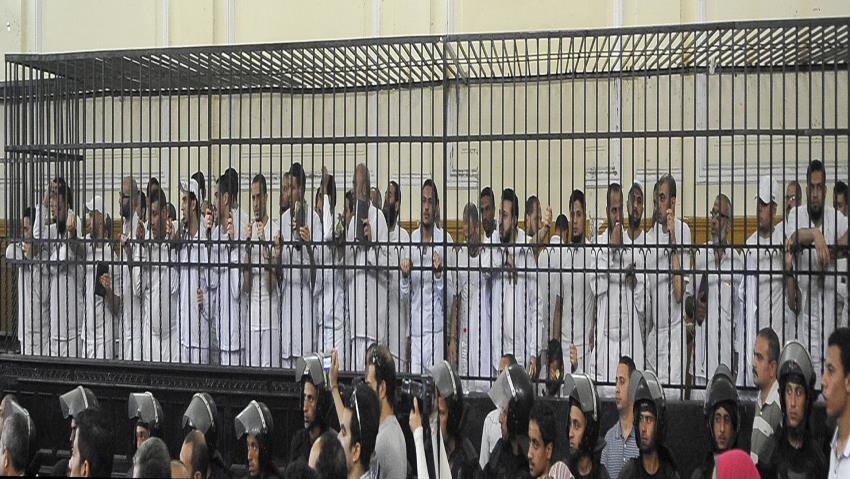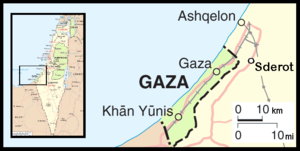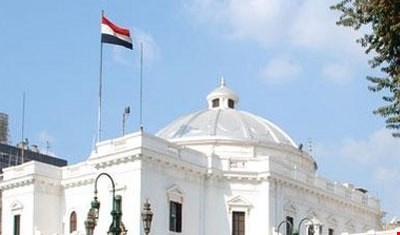Mohammad Al-Batawy
EgyWatch – June 9, 2019
Since the passing of the constitutional amendments in Egypt in April
2019, the country has essentially entered a state of political stagnation
with no possibility of significant change until the forthcoming
presidential elections in 2024.
The Egyptian opposition is not anticipating any political change through
parliamentary elections scheduled for the end of 2019, but rather, is
gathering pressure against the constitutional amendments that
extended the current president's rule until 2024, with the possibility of
allowing his presidency to be renewed until 2030.
The political deadlock hasnt brought peace for opposition activists.
Indeed, Egyptian security authorities find every cause to arrest them in
every season and have rushed to arrest activists and opponents after the
latest constitutional amendments.
The campaign of off-season arrests has fueled a climate of fear among
activists and dissidents, removing any hope of respite from the
continuing arrests.
These concerns are compounded by the fact that the campaign of
arrests does not exclude anyone, from liberal activists, leftists and youth
movements, to members of the Muslim Brotherhood and other political
Islamic groups which Egyptian authorities have consistently carried out
large-scale arrests among their supporters and sympathisers.
Some activists are under scrutiny by Egyptian authorities and spend
periods of time in custody in police departments, some of which last for
long hours every day.
On May 13, 2019, national security summoned socialist activist Haitham
Mohammadin to a police station in Giza. Upon arriving at the police
station, he was arrested and detained without being allowed to contact
his lawyer or family for four days. He was later accused by authorities of
violating his probation terms.
Haitham Mohammadin had been under precautionary procedures since
his release on October 30, 2018, following five months of arbitrary detention
on trumped-up charges of inciting protests against austerity measures.
On May 14, 2019, brother of the founder of April 6 Youth Movement
Ahmed Maher, Mustafa Maher, was arrested by police forces in
plainclothes from his house in Cairo without an arrest warrant.
Authorities kept him in incommunicado detention until May 16.
On May 16, 2019, the Supreme State Security Prosecution ordered the
detention of both Mustafa and Haitham for 15 days over charges of
“aiding a terrorist group.” They were not able to meet their lawyers
ahead of interrogation and Haitham was interrogated without a lawyer
present.
Al-Azhar University Professor, Sheikh Mahmoud Shaaban, known for his
Salafist anti-regime ideology, was also arrested on May 17, 2019, for the
second time.
On May 21, 2019, several Egyptian governorates witnessed the arrest of
dozens of secondary school students after protesting against the
difficulties, problems and failure of an online examination system.
The Supreme State Security Prosecution also decided in late May to
imprison four Zamalek fans for 15 days over charges of joining a group
established in violation of the law.
Egyptian authorities also arrested Al-Jazeera journalist Mahmoud
Hussein and transferred him to prison after he had received conditional
release in the case that he was being held for. The prosecutor opened a
new investigation with Hussein in a new case and decided to detain him
for 15 days pending investigation.
Egyptian journalist Yosri Mustafa was also affected by the arrest
campaign. He was arrested at Cairo airport on April 16 while on his way
to Saudi Arabia to perform Umrah. Yosri previously worked as a
journalist for the Muslim Brotherhoods Freedom and Justice
newspaper. Although he has been detained for two months, he has not
appeared in court and remains under enforced disappearance.
The arrest campaign has also expanded to include others under
surveillance, and although they regularly attend police stations to follow
up procedures and spend hours in police stations on a daily basis,
Egyptian authorities have arbitrarily detained them or subjected them to
enforced disappearance.
Among those is Abdul Rahman Bayoumi who has been in a period of
surveillance for five years in the case known as ‘Rabaa sit-in dispersal’.
He has now been subjected to enforced disappearance by Egyptian
authorities.
The fierce crackdown, despite the political deadlock, has prompted
Egyptian activists to wonder about the reason for such a campaign.
Some opponents think that the Egyptian regime feels threatened by the
young activists and fear an overthrow. This hypothesis is backed
historically where previous presidents were overthrown following
constitutional amendments.
Another prominent reason for this campaign of arrests is the worsening
economic and living conditions of Egyptian households. The current
unprecedented rise in prices has not coincided with a similar rise in
wages, and so the Egyptian people’s ability to buy the most basic living
requirements has been affected.
Furthermore, the current political stagnation is affecting the regime's
sense of security as such conditions pave the way for the prospect of a
revolution.
Another reason for the crackdown is the emerging boldness and
audacity in critising the regime. Indeed, the demand to overthrow the
regime has become bolder and more explicit recently, and the section of
the public demanding this are no longer limited to the Islamists (the
traditional enemy of the ruling regime in Egypt), but includes liberals and
leftists. The current regime has clearly forgotten the role of social
networking in overthrowing the Mubarak regime in 2011.





Recent Comments